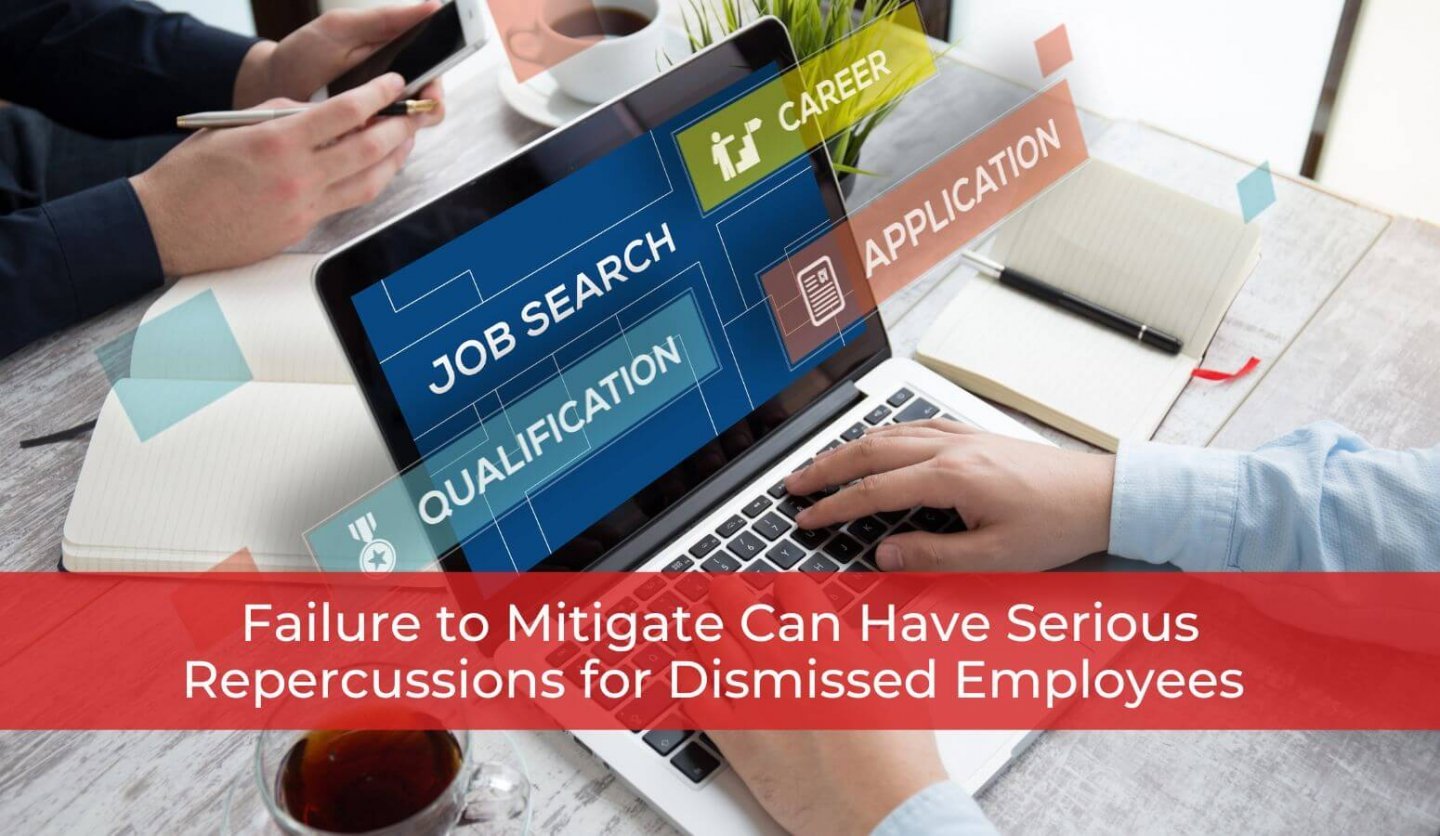
Failure to Mitigate Can Have Serious Repercussions for Dismissed Employees
Most employees dismissed without cause will be entitled to reasonable notice of their dismissal. What reasonable notice will mean in each case will depend on considerations like the employee’s age, tenure, compensation and availability of similar employment. However, something that employees often forget is their duty to mitigate. A failure to mitigate can have significant impacts on a dismissed employee’s notice entitlements.
Mitigation means that employees need to make ‘reasonable efforts’ to reduce their damages, in this context by finding comparable reemployment. What will be reasonable in each case will depend on the circumstances, but it is generally not a difficult threshold to meet. Diligent job searchers will send out a few job applications a week to comparable jobs within a reasonable distance from home.
The Ontario Small Claims Court recently considered the failure to mitigate in Patel v Crimp Circuit. This case considered a 54 year old Quality Assurance Inspector with 14 years service. He was awarded 14 months notice, but it was reduced to only 5 months to reflect his failure to mitigate. The judge noted that the employee applied only to positions in a different industry, despite his limited experience. He also failed to apply to listings provided by the employer in the same industry. The company that purchased his former employer even offered him the same job, but he never followed up.
This case shows that mitigation needs to be taken seriously by employees. By sending out applications only for positions that he was unqualified for, he could not reasonably have expected to obtain new employment. Similarly, his failure to accept employment from the new owner, without a proper explanation, undermined his credibility and was not reasonable in the circumstances.
The employer ultimately bears the burden of proving that a dismissed employee failed to mitigate. Employees that focus only on personal preference when applying for new jobs may be in hot water when the employer points out the shortcomings in their mitigation efforts. While an employee is not obligated to accept employment that is not comparable, they may need to explain why they did not follow up on certain opportunities.
If you would like more information on the duty to mitigate, from the employee or employer perspective, get in touch! The experienced employment lawyers Whitten & Lublin are happy to provide insight and advice into your specific circumstances. If you are looking for employment lawyers and would like more information about what Whitten & Lublin can do for you, please contact us online or by phone at (416) 640-2667.
Author: Rachel Patten



